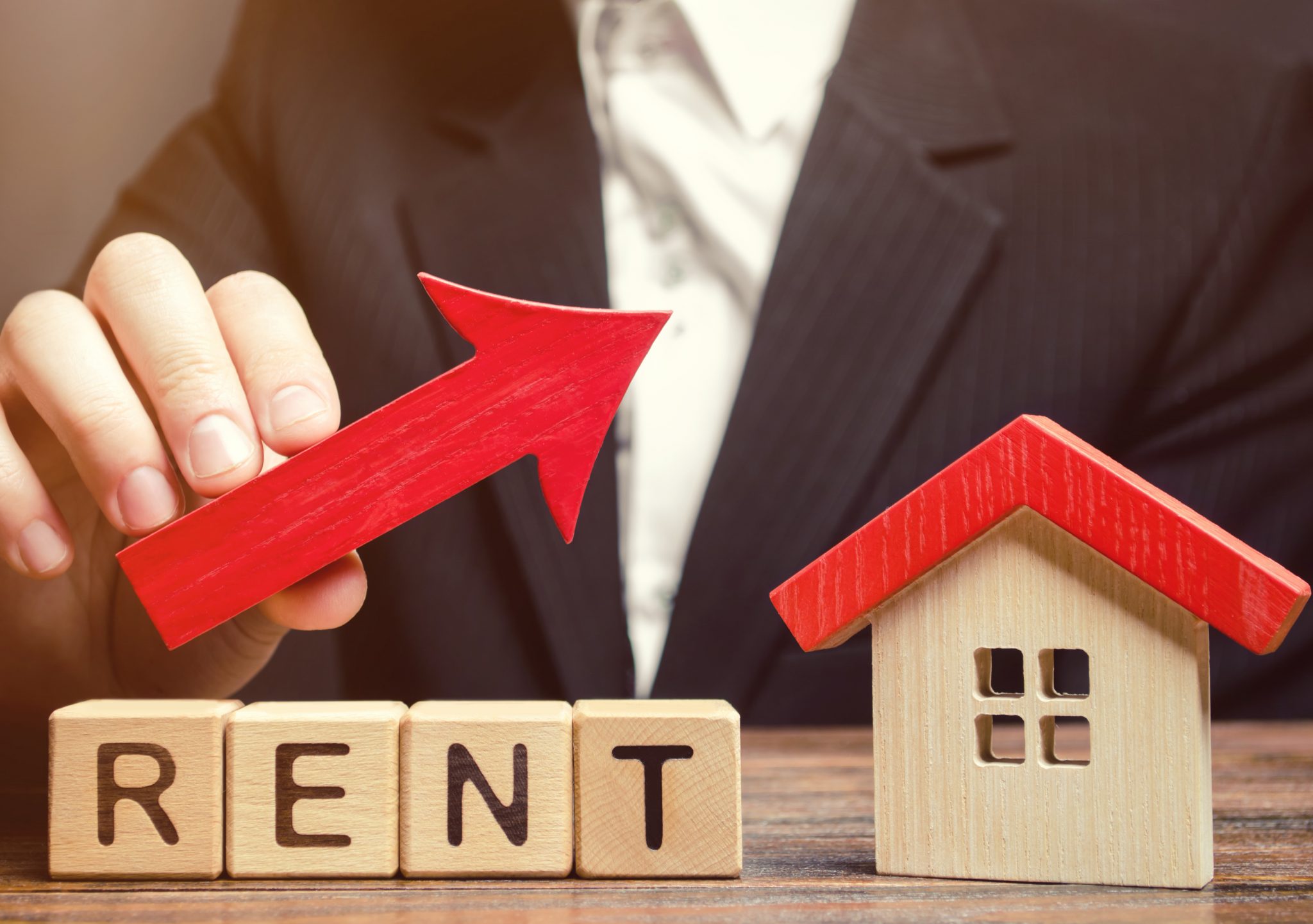A Guide to Rental Property Financing
Rental property financing is complex for new investors to understand.
Real estate investments are highly desirable as they provide opportunities for sustainable growth. For the majority of investors, buying rental properties can be the right way to start in real estate. Rental properties can be a source of healthy passive income. With time, expanding and diversifying this real estate portfolio becomes desirable.
However, financing the first rental property can be challenging. For a first-time real estate investor, the right funding for the first rental property is essential, otherwise, it can turn out to be a problem in the future.
However, financing has become very difficult for new investors due to trust issues in the market. For investors with decent credit sources, there are several ways to arrange funds.
A conventional way to invest in rental properties is saving money for down payments and arranging mortgages for the remaining payments. However, this is not the only path to financing rental properties.
Feeta.pk, Pakistan’s smartest property portal provides a complete guide on rental property financing.
Ways to Rental Property Financing:
The following are some of the ways that can help generate rental property financing:
- Private funding
- Online mortgage providers
- Seller financing
- Home equity
- Group investing
Let’s discuss these sources in detail.
Private Funding:
The real estate market has giant investors and businessmen who are always looking for different investment opportunities. They provide buyers with private financing with interest. The process is quite similar to conventional mortgage payments, but a quicker one.
For people who are looking to expand their portfolio in the real estate market, private financing can be an excellent way to fund properties. Traditional mortgage payments are slow and require documentation and legal procedures. However, a private funding source will provide you with the required funds with little documentation and no hassle related to legal procedures.
Rental properties are mostly financially feasible investments with a positive cash flow each month. In such cases, buyers can avail of private funding for short periods and then shift to mortgages later on. This will allow them to save more money from rent.
Buyers must also keep the high-interest rate factor in mind. Private lenders take higher interests as compensation for payments of large sums in a shorter time. However, this factor should not stop buyers from availing of quick funds.
Online Mortgage Providers:
Arranging a traditional mortgage is a complex and daunting task. It takes anywhere between three to seven weeks and lots of documentation procedures to get a traditional mortgage approved. The conventional mortgage process is completed in six steps:
- Pre-approval
- Property shopping
- Mortgage application
- Loan processing
- Underwriting
- Closing
To avoid this toil and lengthy procedures, finding an online mortgage provider can be a good choice. Rental property loan from an online lender is hassle-free and convenient. Buyers do not require to visit any banks and arrange brokers for the legal procedures and paperwork. All they have to do is to fill out the mortgage application online from their computers or mobile phones.
Online mortgage providers usually do not demand debt-to-income (DTI) details or any details about property size. This helps buyers get the required loans and invest them in any property of their choice. Moreover, loan repayment conditions are also flexible.
Seller Financing:
Seller financing might not seem like an appropriate idea while thinking about rental property financing. But, in cases when investors are unable to find finances from traditional or online mortgage providers or private funding, this can be a good option to try.
Seller financing is the process of arranging finances from the person who will sell you the property. If the property owner agrees to lend you the funds, it might be the easiest way to finance your rental property. Banks and credit unions have lengthy procedures to follow.
Seller financing has two major scenarios: first, where the seller finances the entire purchase; and second, where the seller finances the down payment. In both cases, the deal becomes easier to conclude.
However, getting finances from the seller is not an easy procedure. Most sellers may not sponsor the deal as they might want to sell their property to finance other projects. The trust factor also comes in while the talks are in process.
The contract must outline all the terms and conditions of seller financing to take the owner in confidence. Moreover, the owner should be aware of all the legal procedures and documentation that will provide a guarantee of payments over time.
Home Equity:
As a buyer who may have an old property in his / her name, an investor can draw money through a property equity loan or cash-out refinance. In most cases, it is one of the best ways to finance a rental property. Property lenders take your existing property as a guarantee to give you loans. The loan can then be refinanced in a new property.
Additionally, investors can borrow loans on their existing property. Most properties can fetch 80% loans of the equity value. On the other hand, cash-out refinance only gives a fixed rate of the loan. In all cases, the process can save you from paying extra payments to banks. ‘
Group Investing:
For investors with limited sources and no other means to finance the rental properties, group investing can be a profitable way to do so. There are hundreds of people out there in the market who can connect and invest in groups.
The concept is very similar to stocks and shareholding. Every individual in the group will get the shares in the rental property according to their investment percentage. This method is being used as ‘real estate investment trusts’ in big real estate projects.
Factors to Consider While Purchasing a Rental Property:
Buying and financing a rental property is a complex process. Several factors should be considered before selecting any property and pouring money into the market. The following are several factors that every rental property buyer must keep in mind:
- Buy a low-cost property
- Avoid high-interest rates on property loans
- Calculate the right repayment margins
Buy a Low-Cost Property:
While starting ventures in the real estate market, investors want to invest in big projects. Most times, it proves to be a big mistake. Similarly, for small investors, it is essential to think before making any investments. Small and low-cost properties are profitable and better investment areas. Higher mortgage payments burden the cash flow from the property as well.
So, to maintain a considerable amount of monthly rent and pay the mortgages, low-cost properties are very convenient.
Avoid High-Interest Rates on Property Loans:
Over the past few years, property prices have skyrocketed and so have the interest rates on loans or mortgage payments. However, some banks and lenders are charging more than the average market rates. Therefore, while purchasing any property on loans, it is essential to look for the right mortgage providers.
Arranging a low-interest mortgage provider will help investors save money from the monthly profits. Moreover, it will help property owners during any renovation work later on.
Calculate the Right Repayment Margins:
Calculation of the right repayment margins is as essential as selecting a low-interest mortgage provider. If the investor is not aware of all the expenses, he or she might miscalculate the payments and profits. It will lead to mismanagement, eventually burdening the owners. Therefore, investors must plan the loan repayment strategy.
Other costs such as home insurance, association fees, property taxes, regular maintenance costs, and pest control expenses should also be part of the payment plan.
For more information about rental property investments, visit Feeta Blog.
A Guide to Rental Property Financing
FAQ on Rental properties in Pakistan / Passive income in real estate
Frequently Asked Questions – Pakistani Rental Properties / Passive Income
Earning a passive income from Rental properties in Pakistan is by far the safest and surest way to get rich. This FAQ will answer some of the basic questions you may have in mind.
Q-1 Rental properties are depreciating and therefore do not offer high yields.
Answer- The problem of depreciation only exists in houses, especially since they offer only 3 to 4% rental yield per year. Advertisements and shops can be like new after small renovations and some apartments offer up to 10% rent to offset any depreciation effect. As a general rule, rental real estate should give you an average of 15% earnings per year. In some value classes, rent can be more than capital gains and vice versa, but it’s good as much as you get 15% of the total earnings. In addition, the benefits you receive from your rental income will be value added over this 15% or will make up for any shortcomings.
At the end of the day, you have to be careful to find a rental property that gives you a nice return. That’s why you need an expert who can analyze and predict capital gains and expected rents for at least the next 5 to 6 years.
Q-2 Do rental properties need time to build and therefore cannot offer returns as shown?
Answer- When you buy a rental property in Pakistan, you need to look at both aspects of income which are capital gains and rental income. Normally, the already-built property will offer 6% rent per year. However, if you plan to build one or buy one that is still under development, what you lose in rentals during the time it is being built, you get capital gains. Those that need time to build, such as tall ones, are usually much cheaper while they are being built.
On average, a good high-growth project will add at least 60 to 80% in capital gains over the construction period, which lasts 3 to 4 years. This capital gain is usually more than 20% thus compensating for the lack of rental income during this period.
Q-3 In rental properties, can problems arise such as lower rents, which can decrease your ROI?
Answer- Like all investments, even rental property can change under certain circumstances. However, this change can be negative or it can also be positive. For research and analysis, target conditions must be ideal for both rental property investment and speculative business investment. Because the chances that speculative traders are wrong are much higher than the tenant investor losing a few months of the lease. Therefore, maintaining the ideal situation for both types of investors is important and is in fact more favorable to the speculative trader.
Q-4 Do houses or commercials give more capital gains than apartments?
Answer- Houses, commercials and apartments are three different asset classes and will not follow similar cycles. A gain in houses over time is due to a gain in plots, which calms down after the area matures, similarly, apartments will also slow down after the building matures. Later, many other factors will come into play to decide whether that property will grow further or not. Similarly, commercials have their own cycle to follow with their own risks because a very large number of commercials do not show much appreciation.
As long as you understand the different dynamics and act accordingly, all of this will yield very good capital gains. Therefore, capital gains will depend on many other factors than just the active class.
Q-5 Which is the best rental property among houses, apartments, commercials and shops?
Answer- Houses are not suitable for rentals, however, as for the other three, each property must be judged separately to identify who will give you optimal rental returns. It will be wrong to give any preference depending on the active class as such.
Ultimately, it all depends on your choice of individual property rather than its value class. A good housing project can outperform an average business in capital gains and conversely, a good commercial property can beat an average housing project easily.
Luxury serviced apartments in Gulberg Lahore for Air BnB rentals are a safer and safer bet than other types of real estate for rental purposes.
Q-5 ROI on rental income is slow, while plots can double their price in a very short period of time.
Answer- You must have heard the old saying. ” slow and steady wins the race“. Rental properties are that turtle that seems slow but never stops, thus giving you a more stable consistent income over the period.
The unpredictability in speculative trading is its biggest enemy. Although speculative trading gives an illusion of higher returns, the high failure rate balances it out. In addition, speculative trading is not suitable if you are an emigrant or a busy person who will not have time to look at the real estate markets constantly.
Our study has shown that both rental returns and successful speculative trading can make almost equal amounts of money in the long run. So renting property leads to being the safest and safest way to achieve your financial freedom goals.
Q-6 Rental properties usually only give 3 to 4% rental income per year.
Answer- That’s not true, only houses give 3% and we already consider them as lame wolf property. Apart from this, some commercial real estate does offer only 4% rental production, but this is usually because they are not yet fully mature and offer much more in terms of capital gains. So investors are happy with them considering that the combined gains are usually 15% or more.
Q-7 (Part 1) Suppose I invest 13 million in a 562 sq.Ft apartment. After 13 years will I get my capital back on 10% rent?
For example:
Hotel Apartment Sq.Ft: 562
Tariff (kv.Ft): 23000
Total Price: 12,926,000
10% Annual Income: 1,292,600
Annual Service Fees (Kv. Ft): 30 Rs * 562 = 202,320
Own tax: 50,000
Rent Tax: 60,000
Annual in Manluo: 980,280
Answer- The calculations we provide do not cover any taxes or liabilities, no matter if you are investing in speculative real estate or rental property in Pakistan. The impact of these taxes will be felt on both sides and will certainly affect ROI but is the bare minimum. For example, the service costs are not as high as 30 PKR and in some cases, they should not be paid by you but by the developer or tenant. In addition, after one or two years, a 10 to 20% increase in rentals will cover any debts without putting a big dent in your rentals.
Second, if the purpose of the question is to compare plots or files with wolf holdings, then similar duties apply to commercial plots as below:
a. Instead of annual service costs you pay a non-construction penalty on parcels and even sometimes development costs.
b. Property tax will be paid even if you also own land, so it is not only applicable to the wolf property.
c. You will pay capital gains instead of income tax because during trading you will sell plots mostly in less than 4 years.
Q-8 (Part 2) If rent is in between it can get my capital back in 11 to 12 years?
Answer- The mistake most investors make when it comes to this calculation is that they do not calculate the profit on rental income. In reality, it will take a maximum of 5 to 6 years for the repayment of capital investment, if you reinvest your rental income at 10% per annum. This could be even faster if you invest with Feeta.pk 1 crore challenge where we can get you up to 20% annual returns.
Take a look at the calculations below, based on a conservative analysis of the apartment in question. During the construction process, we expect 80% growth, then 12% for three years, and 10% later for capital gains. Similarly, the reinvestment of capital is only calculated at a conservative 10% per annum instead of 20%. You can clearly see that it will only take 6 years for the return of your capital after ownership.
Even if we calculate capital gains at 5% after the 3rd year, the value of your asset will still be close to Rs 4 crore. However, it can be said that the rent capital should grow by 15 to 20% rather than 10%, so realistic performance can vary and the calculations below are just to understand the concept of rental investment and the compounding effect.
Q-9 (Part 3) During this period If I want to sell my apartment to invest in some other area. I will be stuck in the apartment.
Liquidating Assets (housing) will be more difficult. You may be blocked for a longer period than plot Winding. Because Average Liquid Asset (plot/house) lasts 6-12 months on normal days.
Service Apartments are good for rental purposes. But for monetization, we may be stuck for a longer period of time. Because people prefer to book new apartments for a fee not 5-10-year-old apartments at full payment?
Answer- Selling a rented built property will take a little longer than a plot or file. However, rental property continues to give you cash every year, unlike a plot or file, which is in fact a liability because you will pay the non-construction penalty and other company charges as well as development costs in case of any plots and files.
So it all depends on how you define liquidity. a property that will sell out quickly or a property that will repay you 10% in cash each year and repay 100% capital in 5 to 6 years.
Ultimately, like any other property, how quickly your apartment will sell depends on the quality of the project rather than the value class. Not all projects will be the same and sales will vary depending on your choice today. Monotation is also much better in relation to wolf ownership because you will have full capital in 6 years which can be invested again in other places.
For more information on the real estate sector of the country, keep reading Feeta Blog.




